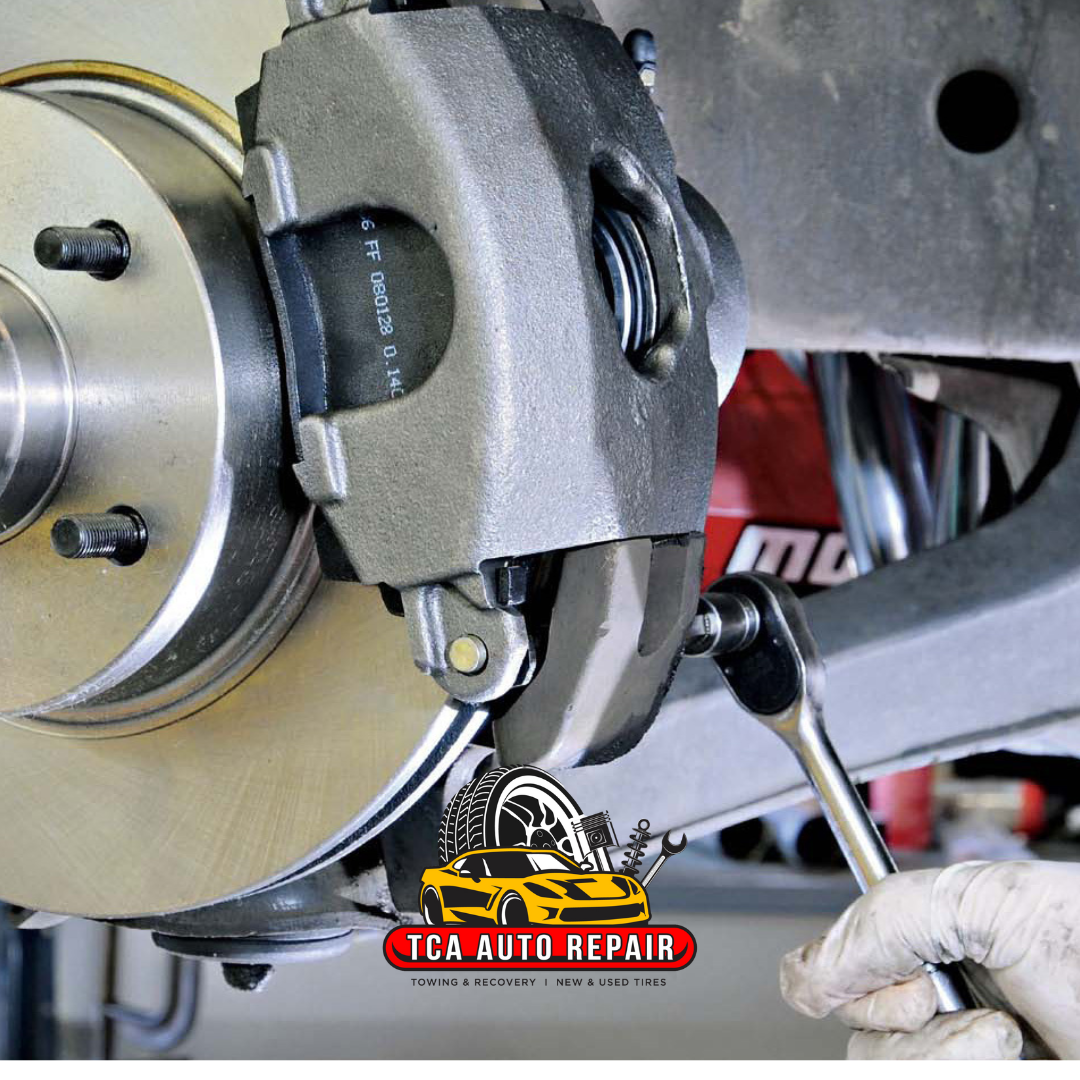- Hours Of Operation:Mon-Friday 8am - 6pm
- Towing Service: Open 24/7

Experiencing vibrations or shaking when braking can be alarming for any driver. If you find yourself asking, “Why does my car shake when I brake?”, you’re not alone. Understanding the causes and implications of these vibrations is crucial for your safety and your vehicle’s performance. In this blog, we’ll explore the potential reasons behind your car’s shaking during braking, how to diagnose the issue, and when to consult a best brake repair mechanic for help.
One of the most frequent culprits behind a shaking vehicle during braking is warped brake rotors. This occurs when the rotors become uneven due to excessive heat or wear. When you apply the brakes, the uneven surface of the rotors can cause a pulsating sensation in the brake pedal and steering wheel. If you notice vibrations, especially when applying the brakes at higher speeds, warped rotors may be the issue.
Uneven brake pads are another frequent problem. Braking vibrations may result from the brake pads’ uneven grip on the rotors if they deteriorate at different rates. Poor installation or the use of subpar braking parts can frequently make this issue worse. This issue can be avoided by routinely measuring the thickness of your brake pads.
A noticeable vibration in the brake pedal when you press the brakes is usually an indication that something is not quite right. Warped rotors or uneven pads may be the cause of this brake pedal vibration, but it may also be a sign of other problems with the brake system. This feeling is your car’s way of telling you that it needs maintenance, so always pay attention to it.
It is especially concerning if your steering wheel rattles as you brake. The steering wheel sensations frequently indicate an alignment issue or a front brake problem. It can indicate loose parts in the braking system or deformed rotors. Ignoring this symptom may cause more serious issues later on.
Worn wheel bearings can also cause your car to shake during braking. These bearings support the weight of the vehicle and enable the wheels to spin smoothly. If they are damaged or worn out, you may experience vibrations when braking or accelerating. A mechanic can help diagnose and replace any faulty wheel bearings.
Car shaking can occasionally have causes other than the brakes. Vibrations during braking can also be caused by suspension problems. For stability during braking, parts including shocks, struts, and ball joints must be in good working order. It is advisable to have a professional inspection if you suspect suspension issues.
Understanding the signs of brake issues is essential for keeping your vehicle safe and functional. Here are some common symptoms that indicate potential brake problems:
If you notice any of these symptoms, it’s crucial to act quickly. Repairing shaking brakes early can prevent more severe problems and costly repairs down the line.
Proper brake maintenance can go a long way in preventing shaking and ensuring your safety on the road. Here are some effective tips:
To make sure all parts are operating properly during a brake checkup, take into account the following checklist:
If you are unsure how to perform these checks, it’s best to consult a car mechanic or look for car repairing near me to find qualified professionals who can assist you.
if your automobile shakes when you brake, do not take it lightly. It is critical to treat these symptoms as soon as possible, regardless of the cause—uneven brake pads, warped brake rotors, or other problems. You may stay safe and avoid expensive repairs by being aware of the typical causes, warning signals, and maintenance advice for brake problems. If you have any questions concerning any part of your braking system, do not be afraid to seek advice from an expert car mechanic. Putting the health of your car first guarantees both your safety and the safety of other drivers.